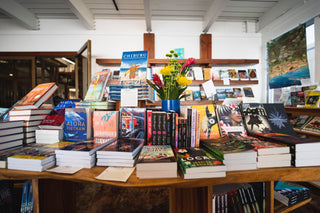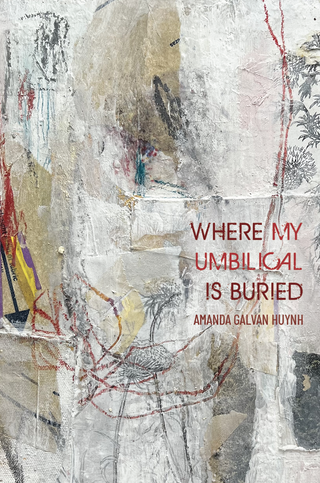Author: Amanda Galvan Huynh | Paperback
Amanda Galvan Huynh's debut poetry collection Where My Umbilical is Buried is a "heart in purple" crayon under a table's left rib. It remembers the laughter around a game of Lotería, "cicada shells / ghosting" tree branches, Texas-shaped tortillas, and learning "numbers in English, / in Spanish." Here we find familial portraits scattered across small Texas towns, boots shuffling to La Reina de Cumbia in dance halls, hands "[grasping] at words" to make sense of an unforgiving world. Galvan Huynh asks us to consider the intersections of our heritage and to reflect on our mothering as it nests within our present selves. She calls us to witness the ramifications of assimilation and the inheritance of fear-how a tongue resists being "pulled away / saying grandpa instead of abuelo" and cultivates space to "envelop the Bidi Bidi Bom Bom [her] familia / sways to." Where My Umbilical is Buried is a threshold for acceptance and healing. Galvan Huynh discovers what it means to be a daughter of a grieving mother, orphaned at sixteen, and the ways trauma passes down to the next generation. These poems meditate on what happens when a daughter has "no room left to hold / her mother's pain." We learn "to be worthy." We learn "to dig / into the soil / and hold on."
Author: Amanda Galvan Huynh | Paperback
Amanda Galvan Huynh's debut poetry collection Where My Umbilical is Buried is a "heart in purple" crayon under a table's left rib. It remembers the laughter around a game of Lotería, "cicada shells / ghosting" tree branches, Texas-shaped tortillas, and learning "numbers in English, / in Spanish." Here we find familial portraits scattered across small Texas towns, boots shuffling to La Reina de Cumbia in dance halls, hands "[grasping] at words" to make sense of an unforgiving world. Galvan Huynh asks us to consider the intersections of our heritage and to reflect on our mothering as it nests within our present selves. She calls us to witness the ramifications of assimilation and the inheritance of fear-how a tongue resists being "pulled away / saying grandpa instead of abuelo" and cultivates space to "envelop the Bidi Bidi Bom Bom [her] familia / sways to." Where My Umbilical is Buried is a threshold for acceptance and healing. Galvan Huynh discovers what it means to be a daughter of a grieving mother, orphaned at sixteen, and the ways trauma passes down to the next generation. These poems meditate on what happens when a daughter has "no room left to hold / her mother's pain." We learn "to be worthy." We learn "to dig / into the soil / and hold on."
Questions?



